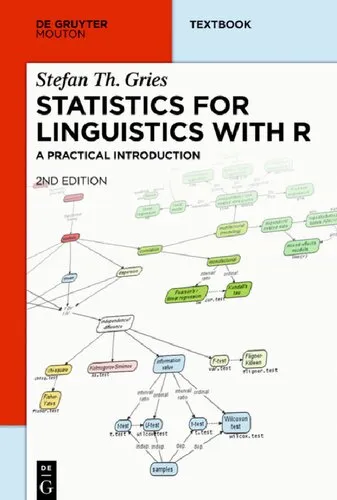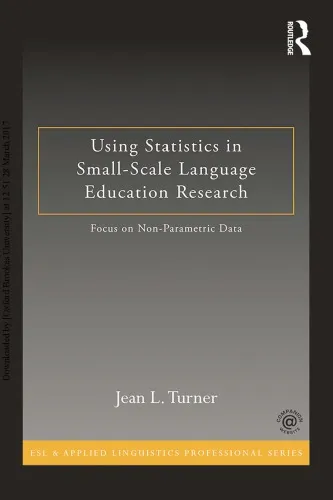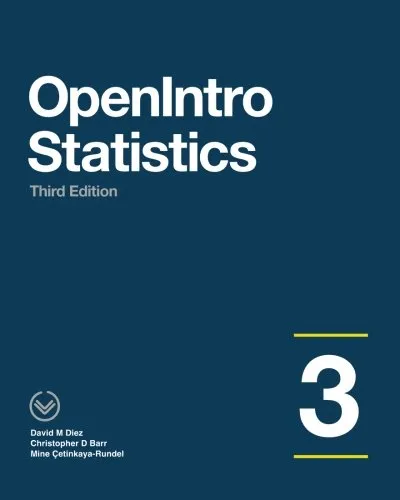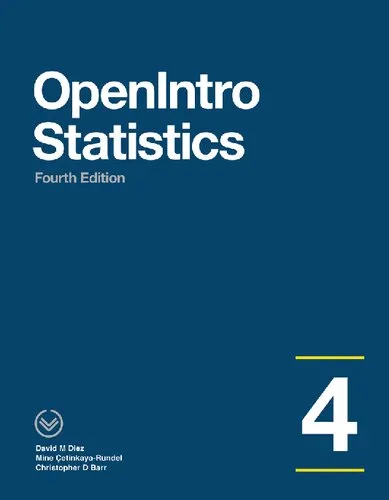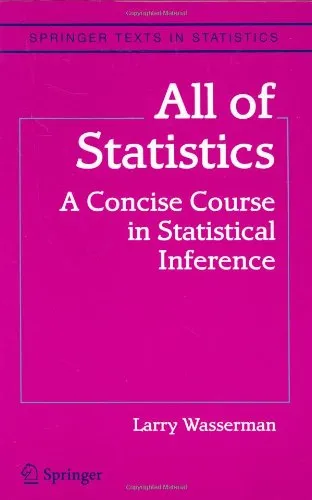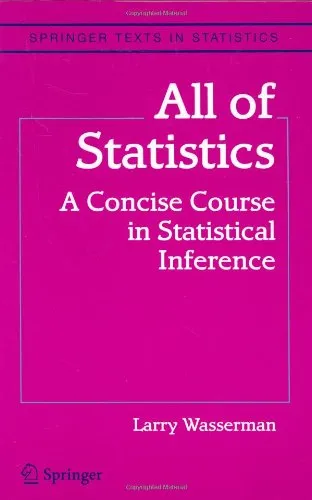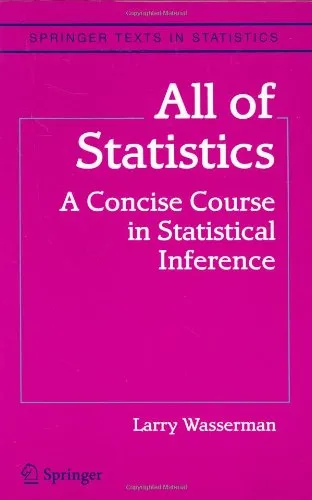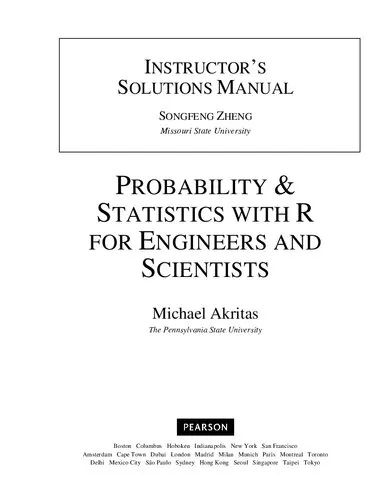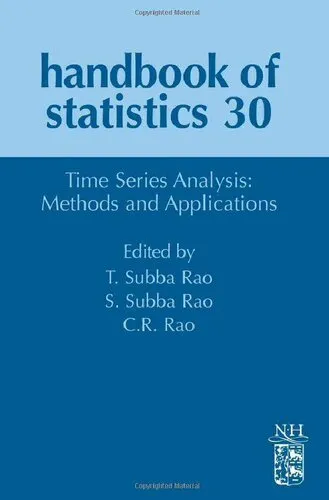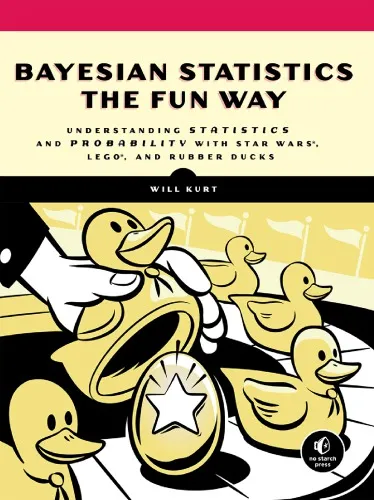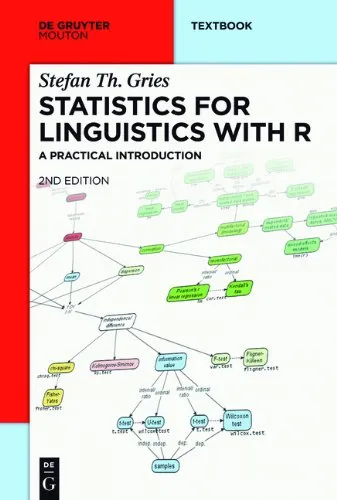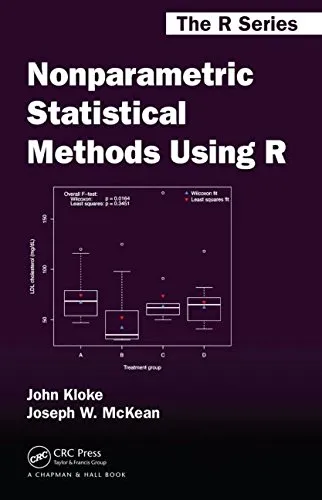Statistics for Linguistics with R: A Practical Introduction (Mouton Textbook): A Practical Introduction
4.5
Reviews from our users

You Can Ask your questions from this book's AI after Login
Each download or ask from book AI costs 2 points. To earn more free points, please visit the Points Guide Page and complete some valuable actions.Related Refrences:
Introduction to 'Statistics for Linguistics with R: A Practical Introduction'
The book 'Statistics for Linguistics with R: A Practical Introduction' by Stefan Th. Gries serves as a comprehensive guide for linguists, researchers, and students who wish to dive into the world of quantitative methods in linguistics. This work meticulously bridges the gap between theoretical linguistics and empirical data analysis using R, a powerful open-source statistical software environment. Written with clarity and pedagogical precision, the book transforms the complexities of statistical analysis into accessible and applicable knowledge tailored for language sciences.
As statistics increasingly becomes central to linguistics research, understanding data, drawing meaningful conclusions, and presenting insightful analyses are essential skills for linguists. Gries combines his expertise in linguistics and deep understanding of quantitative methods to produce an essential resource that is both user-friendly and practical. This book is particularly invaluable for those who might lack a background in mathematics or computer programming, as it provides a step-by-step approach that simplifies complex theoretical concepts.
Detailed Summary of the Book
Gries’s book is an accessible yet rigorous introduction to the intersection of linguistics and statistical data analysis using R. The reader is guided through concepts ranging from basic descriptive statistics to advanced inferential techniques, all through the lens of linguistic datasets.
The book is divided into methodically structured chapters. It begins by introducing the basics of R, including how to install and operate the software, followed by an introduction to datasets and data manipulation. Gries ensures that readers develop an intuitive understanding of statistical principles through examples crafted specifically for the linguistics field. Topics covered include descriptive statistics, correlation and regression analyses, ANOVA, chi-squared tests, and other essential statistical methods.
Each chapter features real-world linguistic questions and dataset analyses. These practical examples demonstrate how statistical tests can be applied to empirical data, such as phonetic variation, syntactic constructions, morphological structures, and corpus linguistics. Gries doesn't merely teach statistics; he demonstrates their application to solve domain-specific linguistic challenges.
The book provides ample exercises and discussion points, encouraging hands-on learning. Throughout, the focus remains on contextual applications for linguistics, making statistical learning engaging and meaningful for the intended audience.
Key Takeaways
- A clear and accessible introduction to statistical methods tailored for linguists.
- Step-by-step tutorials on how to use R for data analysis and visualization.
- Coverage of both foundational methods (descriptive statistics, correlation) and advanced techniques (ANOVA, regression, etc.).
- Practical examples using real linguistic data to showcase the relevance of statistical methods in the field.
- Designed for those without prior experience in programming, making it beginner-friendly.
- Includes exercises and discussion points to reinforce learning.
Famous Quotes from the Book
"The transformation of linguistics into an empirical field depends fundamentally on the ability to analyze quantitative data."
"Statistical thinking is not just about running numbers; it is about asking the right questions and interpreting the answers meaningfully."
Why This Book Matters
This book is a cornerstone publication for modern linguists aiming to engage with empirical data analysis effectively. It addresses a critical gap in the field: the lack of accessible resources for linguistic researchers who want to explore quantitative methods without prior expertise in statistics or programming. By focusing on practical applications and real linguistic scenarios, Gries equips readers with the tools necessary for research that meets contemporary scientific standards.
Moreover, the integration of R as the statistical software of choice ensures that readers are equipped with a skill set that has broad applications beyond linguistics, extending into diverse data-driven fields. The emphasis on hands-on practice, logical thinking, and interpretation of results makes this book not only a guide to statistics but also a resource for cultivating analytical thinking.
In a world that increasingly values data literacy, 'Statistics for Linguistics with R: A Practical Introduction' provides linguists with a critical competitive edge. It transforms statistics from a daunting subject into an empowering tool, making it an essential addition to the bookshelves of both budding and experienced scholars in the field.
Free Direct Download
You Can Download this book after Login
Accessing books through legal platforms and public libraries not only supports the rights of authors and publishers but also contributes to the sustainability of reading culture. Before downloading, please take a moment to consider these options.
Find this book on other platforms:
WorldCat helps you find books in libraries worldwide.
See ratings, reviews, and discussions on Goodreads.
Find and buy rare or used books on AbeBooks.
1316
بازدید4.5
امتیاز0
نظر98%
رضایتReviews:
4.5
Based on 0 users review
Questions & Answers
Ask questions about this book or help others by answering
No questions yet. Be the first to ask!
